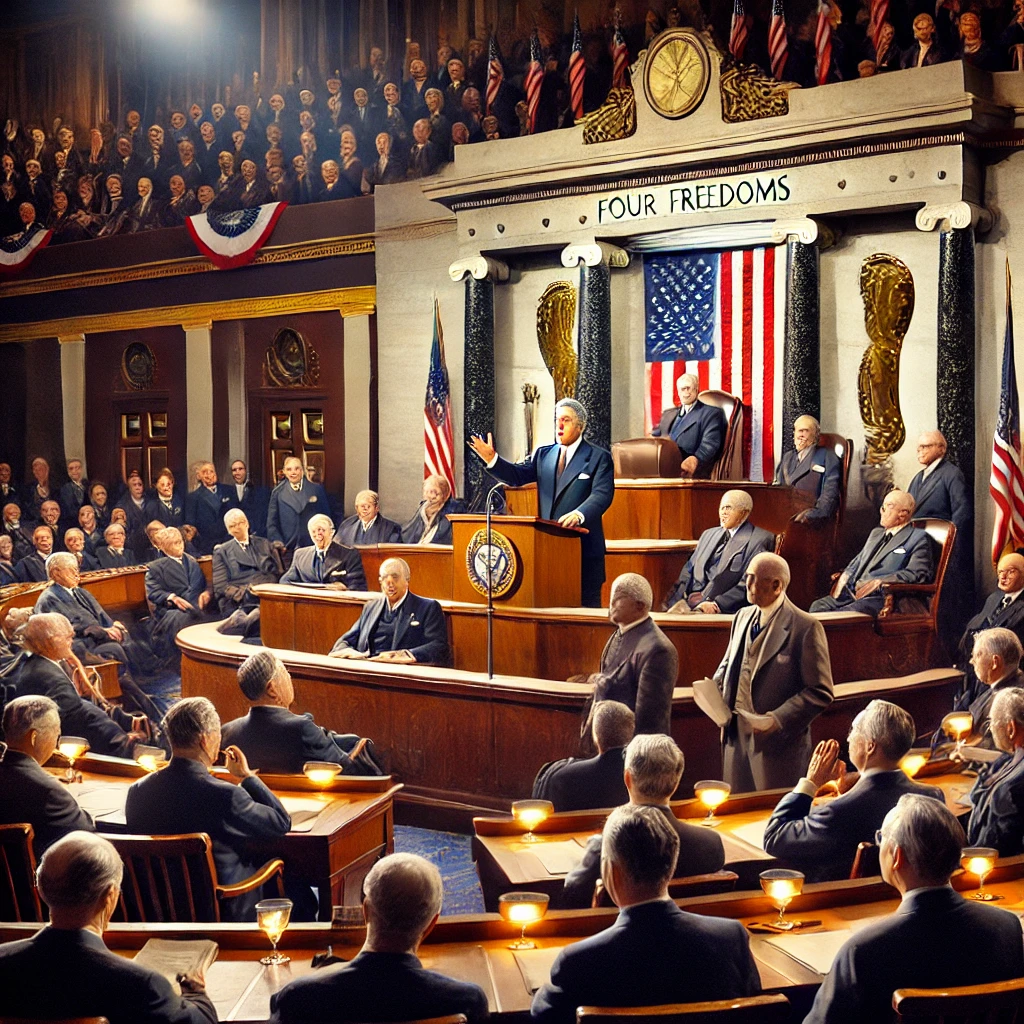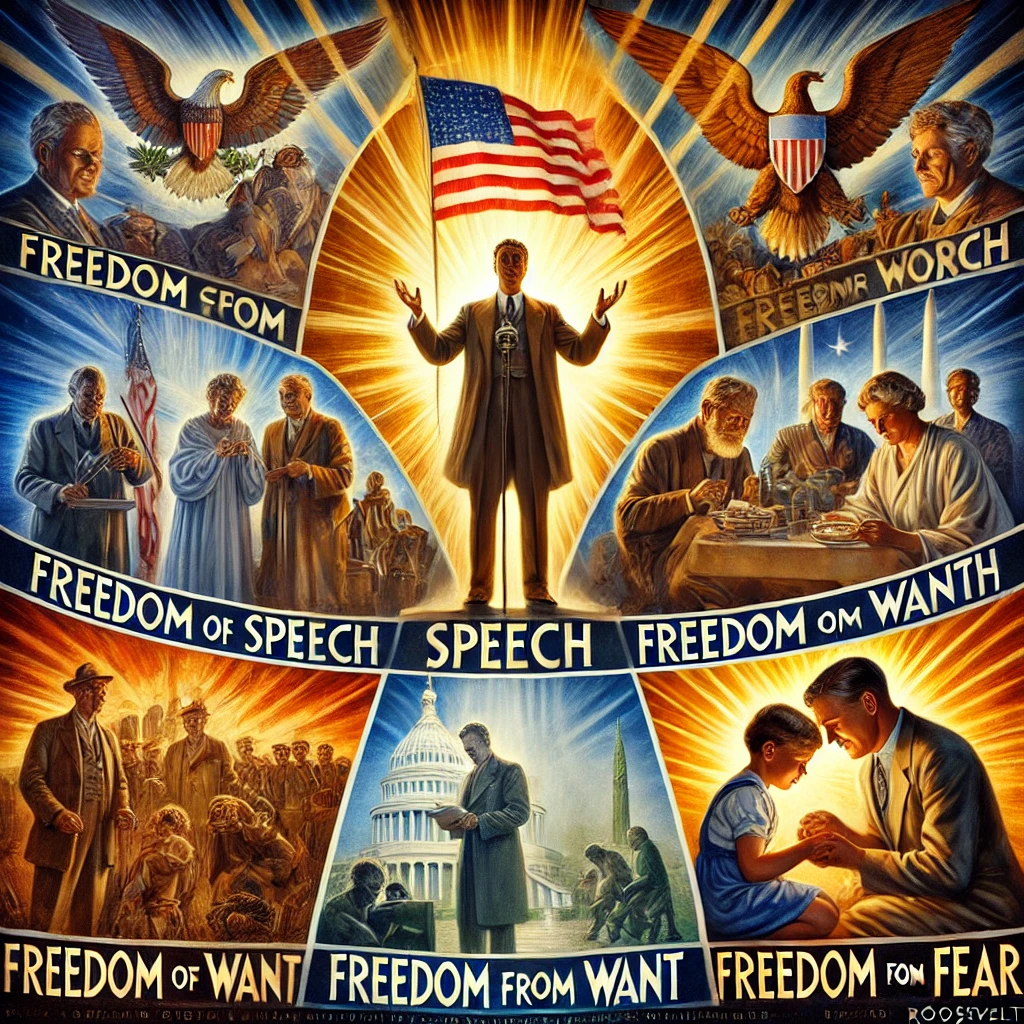On January 6th, 1941, President Franklin D. Roosevelt delivered his historic “Four Freedoms” speech during his State of the Union address. The speech, delivered at a time when the world was engulfed in World War II, outlined the fundamental freedoms that, according to Roosevelt, should be universally accessible to all people. His vision for a world founded on freedom, democracy, and human dignity became one of the defining moments of his presidency and shaped American foreign policy for years to come.

The Four Freedoms
In his speech, Roosevelt presented the “Four Freedoms” as essential human rights that should be enjoyed by everyone, everywhere in the world. These freedoms were:
- Freedom of Speech – The right to express oneself openly without fear of government retaliation.
- Freedom of Worship – The right to practice one’s religion freely and without persecution.
- Freedom from Want – The right to an adequate standard of living, including access to food, shelter, and security.
- Freedom from Fear – The right to live without the threat of war or violence, and to feel safe from oppression.
Roosevelt argued that these freedoms were not only the foundation of American democracy but also essential to the global struggle against fascism and tyranny. He made the case that securing these freedoms was necessary to build a lasting peace, and that the United States had a moral obligation to champion these values worldwide.

The Context of the Speech
Roosevelt’s “Four Freedoms” speech came at a critical juncture in world history. While the United States had not yet entered World War II, the conflict was already raging in Europe and Asia. Nazi Germany, led by Adolf Hitler, had expanded its control over much of Europe, while Imperial Japan was making aggressive moves in Asia. In the United States, isolationist sentiment was still strong, with many Americans wanting to avoid direct involvement in the conflict.
However, Roosevelt believed that the United States could not stand by while dictatorships spread and threatened global stability. By framing the war as a fight to defend the “Four Freedoms,” Roosevelt sought to rally public support for increased aid to Allied nations and, eventually, for American entry into the war. The speech highlighted the moral and ethical imperatives behind the U.S. involvement, rather than focusing solely on strategic or military concerns.

Lasting Impact and Legacy
The “Four Freedoms” speech had a lasting impact, not only on U.S. foreign policy but also on the global order. Roosevelt’s vision helped lay the groundwork for the post-war world, including the creation of international institutions like the United Nations, which was founded on the principles of peace, human rights, and international cooperation. The Four Freedoms became a rallying cry for democratic nations and influenced the Universal Declaration of Human Rights, adopted by the United Nations in 1948.
At home, the speech reinforced Roosevelt’s commitment to social and economic reforms. He argued that securing freedom from want was just as important as securing freedom of speech or worship, calling for policies that would address poverty, unemployment, and inequality. The speech also inspired movements for civil rights and social justice in the decades that followed, as Americans worked toward making Roosevelt’s vision a reality for all citizens.
Franklin D. Roosevelt’s “Four Freedoms” speech on January 6th, 1941, remains one of the most important addresses in American history. It articulated a vision of a world where basic human rights were universally guaranteed, and where freedom, democracy, and security were accessible to all. The ideals Roosevelt outlined continue to resonate today, serving as a foundation for global human rights advocacy and as a reminder of the enduring struggle to secure and protect these freedoms for people everywhere.
